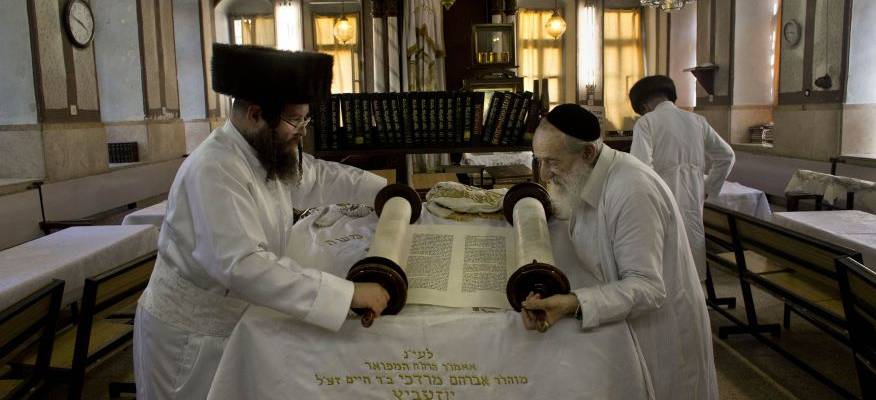Yes, we have to feel remorse, and yes, it may very well be appropriate on an individual level to be moved to tears, but on the whole, our sages teach us that the confessional is actually a time to be happy.
Yom Kippur is the holiest day on the Jewish calendar. It is the one day a year that God puts aside to grant us atonement and forgive us for all our sins and misdeeds. In fact, for that reason, it is also one of the happiest days of the year!
Virtually the entire day is spent in prayer. There are many laws that are observed; as is well-known, there is no eating or drinking for more than 24 hours.
Among the many laws related to Yom Kippur is the somewhat cryptic comment in the Code of Jewish Law that says: “A person should not deviate from any of the established customs of the city, including the tunes that are used for the prayers.”
Wow! Can you imagine? We are not allowed to deviate from our customs and traditions…right down to the very last detail regarding the tunes that are used to recite the prayers! Why are even the tunes so important to maintain?
Sacred Tunes Move the Soul Closer to Heaven
It is explained that tunes move the soul. When our souls hear the holy tunes of old, they experience great pleasure and enjoyment. Furthermore, when the soul is moved by the tunes of the prayers, it attaches itself to the praises sung by the angels in heaven. When this happens, the soul feels a closer connection to God, and by extension, God’s spirit rests more intensely upon us. When the cantor leads the services in the synagogue using these sacred tunes (often 400-2,000 years old!), he is causing our prayers to reach the King of Kings, who sits on His throne on these High Holy Days and eagerly awaits our prayers.
But here’s something odd. Although singing is certainly an important part of prayer –at any time—there is one time during the Yom Kippur prayers where we specifically sing, though doing so might seem inappropriate. When is this? When we confess our sins! That’s right. The Ashamnu (expressing guilt) and the Al Chet (enumerating our sins) prayers, where we mention even the most unbecoming and vile transgressions,are sung as a song. And a song with a happy tune at that!
While one would think that tears and sobbing is more appropriate for such prayers, this is not the case. Why? Because confessing our sins is a mitzvah (commandment), and we are supposed to do all of them joyfully. We are happy that we are fulfilling a very difficult mitzvah, and we are happy that God gives us the opportunity each year to be forgiven for our sins. This happiness is expressed through our singing of these prayers. Yes, we have to feel remorse, and yes, it may very well be appropriate on an individual level to be moved to tears, but on the whole, our sages teach us that the confessional is actually a time to be happy.
Furthermore, we learned recently in one of our webinar classes that according to Jewish tradition, when a person repents to God out of love, his sins are transformed into merits! Singing in general, and singing during the confessional in particular, certainly helps bring out the inner love that a person has for God, and when this happens, it will hopefully turn his sins into merits.
Yom Kippur is certainly a difficult day, but let’s be sure to make it a meaningful and powerful one as well! May all our sins not only be forgiven, but also turned into merits!
G’mar Chatima Tova! May you be sealed in the Book of Life!
By: Rabbi Ari Enkin, Rabbinic Director, United with Israel

Send Passover Packages to Needy Israeli Soldiers - Bring Them Joy!
We are honored to thank the young men and women of the IDF who risk their lives every day to protect the citizens of Israel. Since October 7th, soldiers have been on the battlefield for months - many are hoping to come home for Passover.
Join us in sending Passover food packages (and personal notes) to Israeli soldiers and their families.
Many soldiers spend the Passover holiday with needy families back home. The soldiers greatly appreciate your love and concern. Bring them Passover joy!
CLICK HERE TO SEND YOUR PACKAGE AND NOTE TO ISRAELI SOLDIERS!




